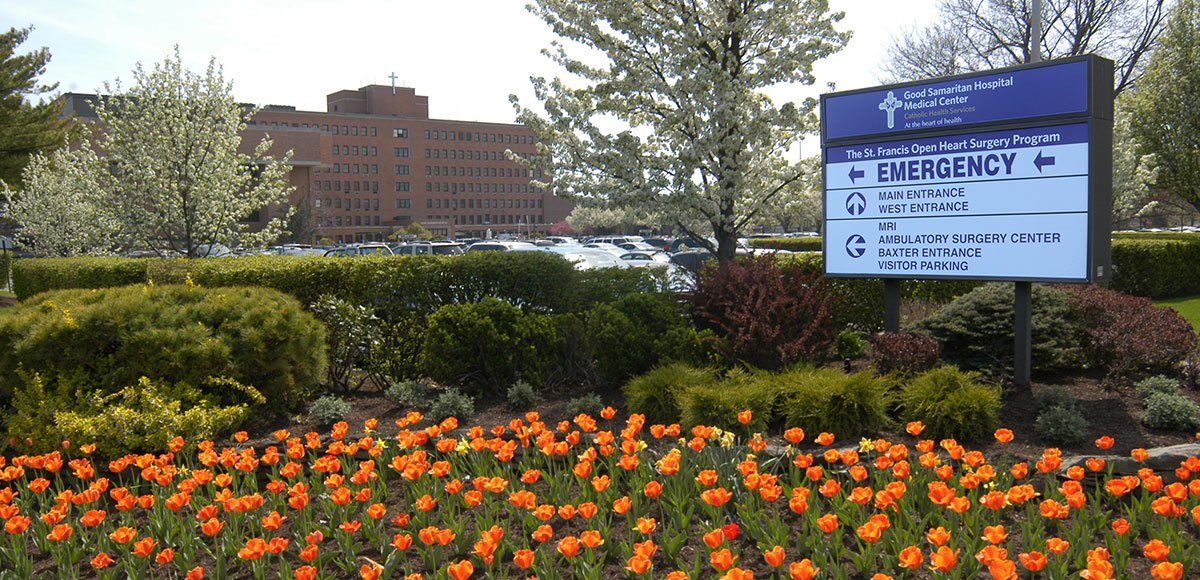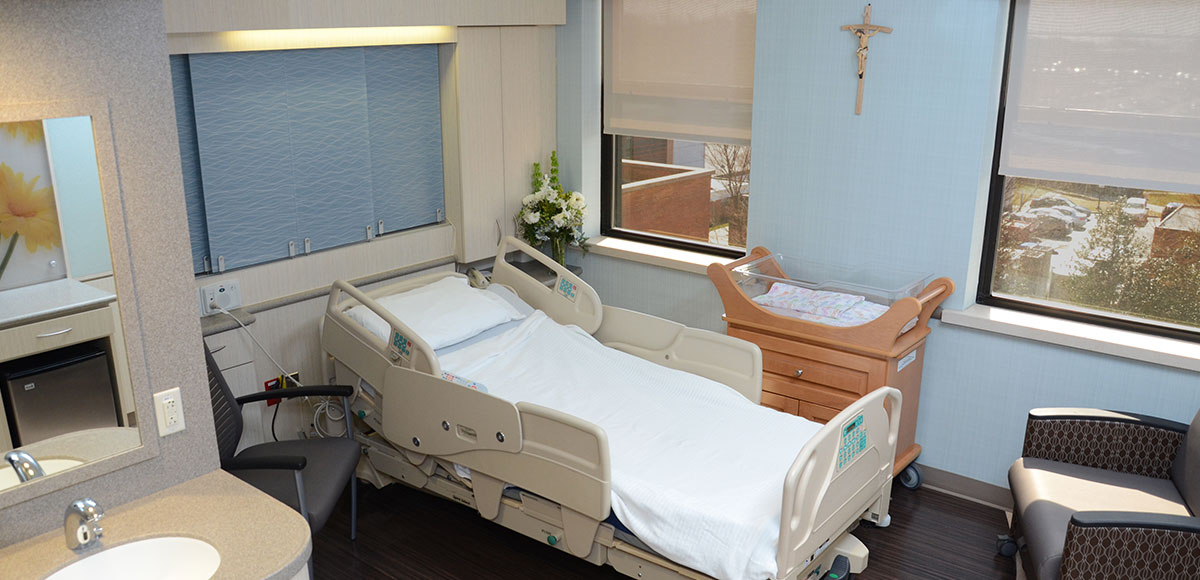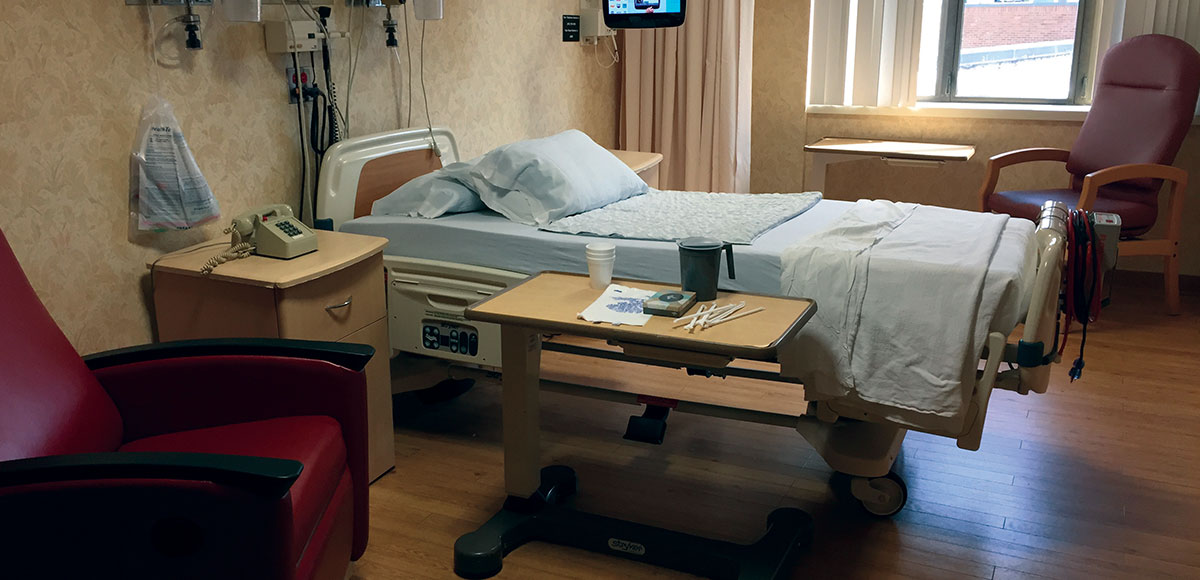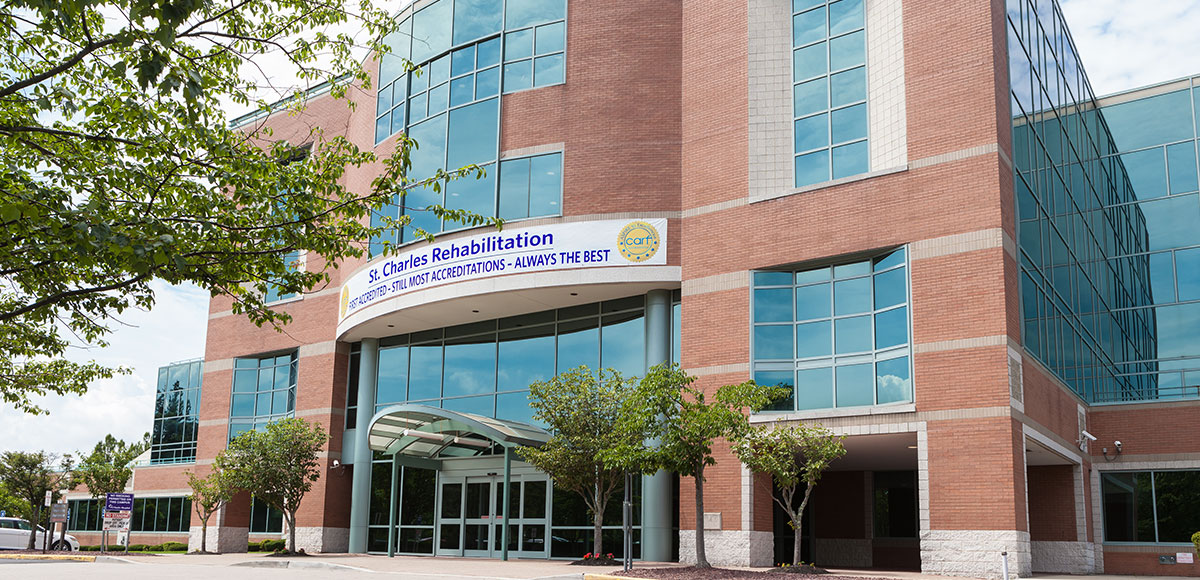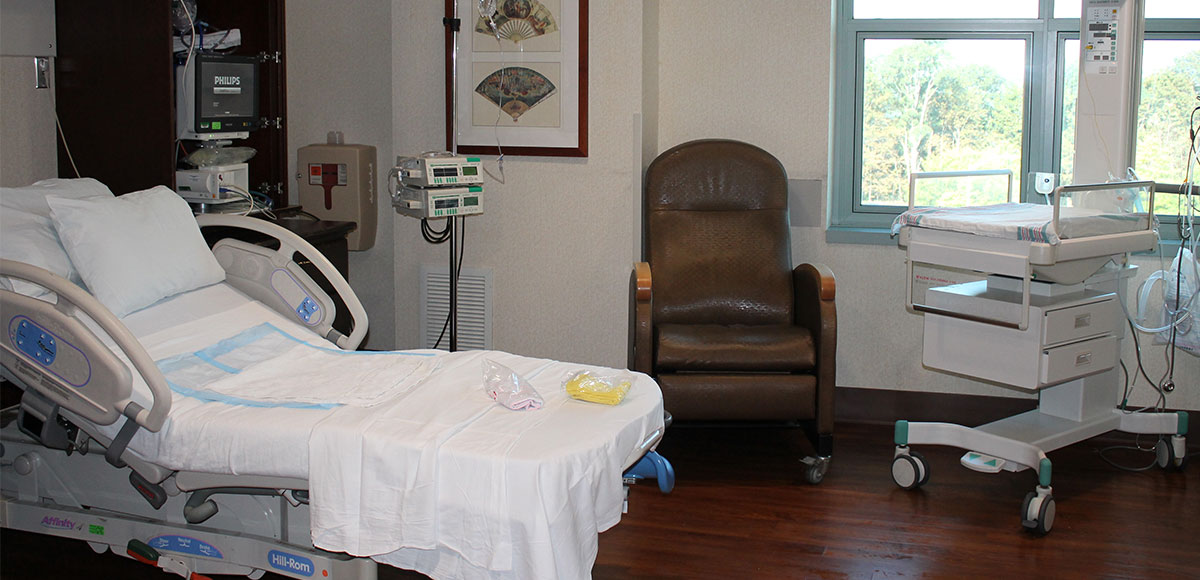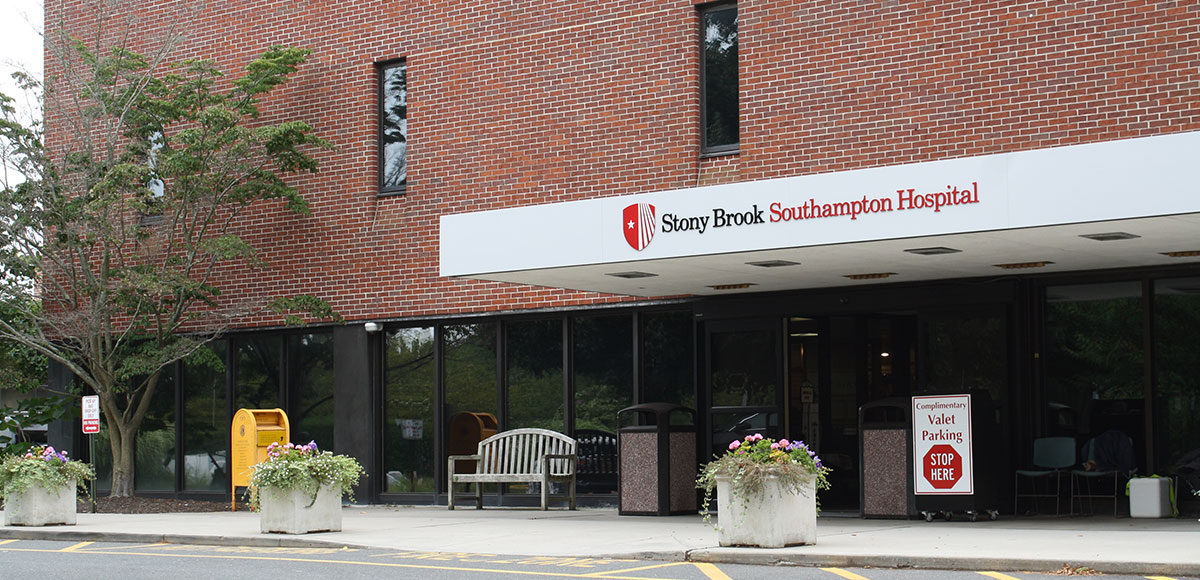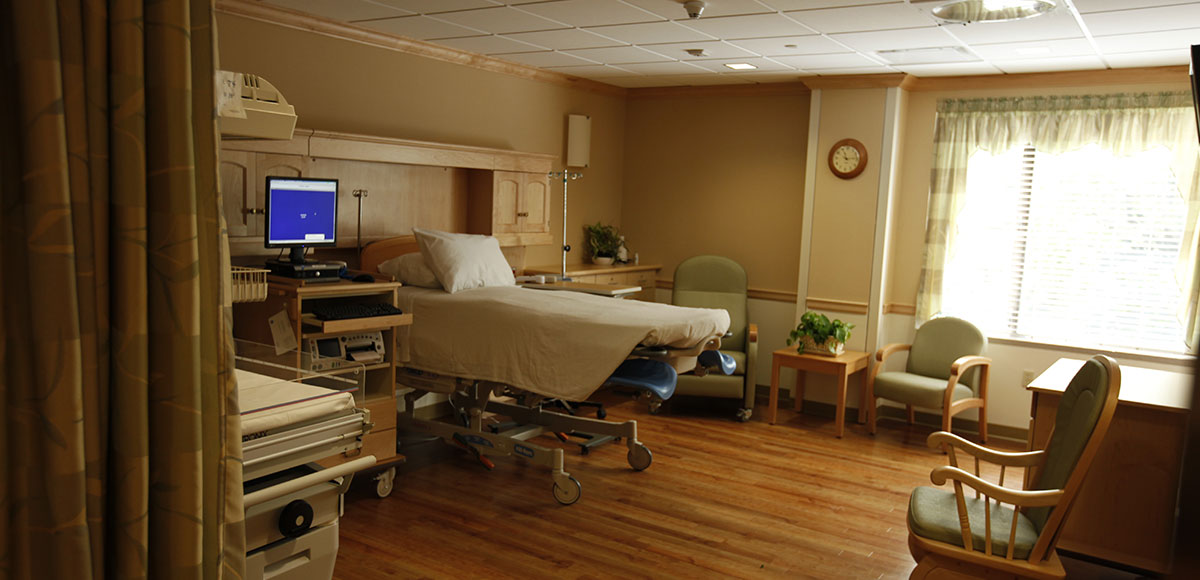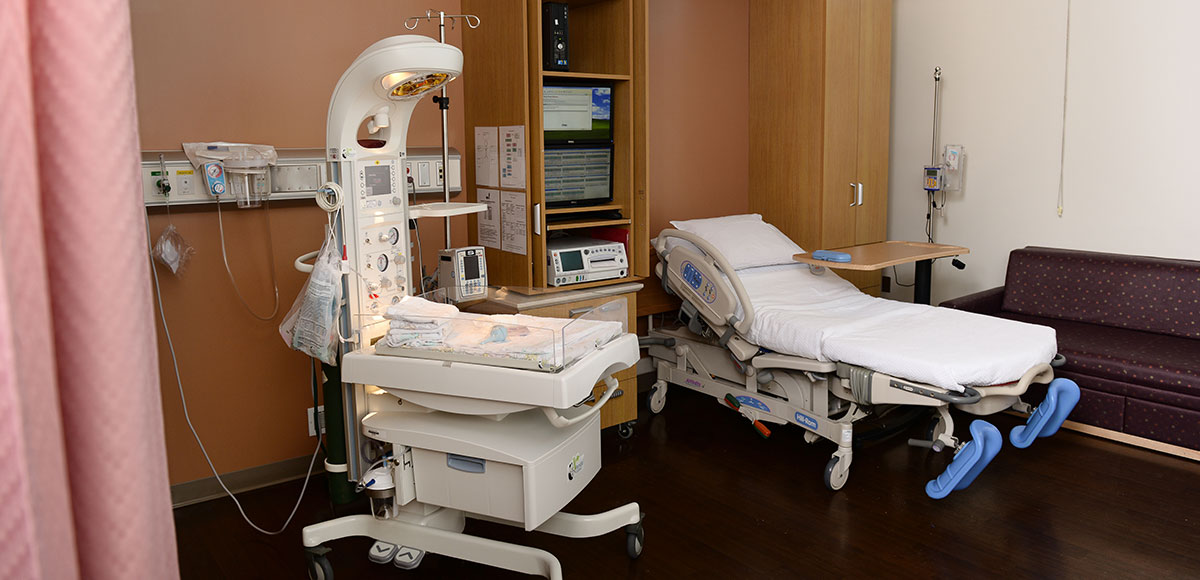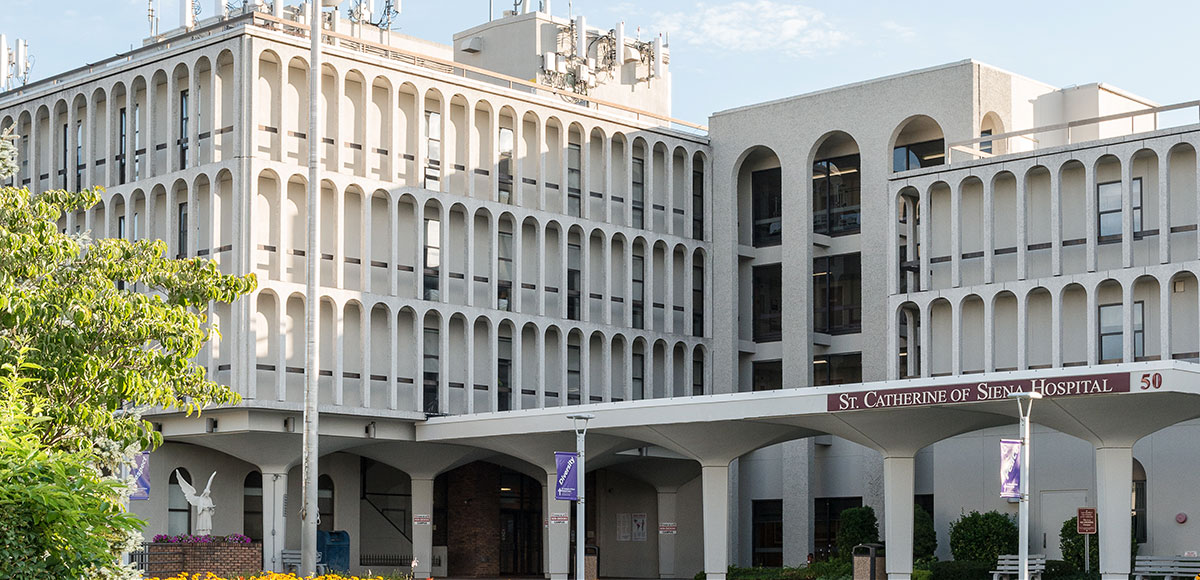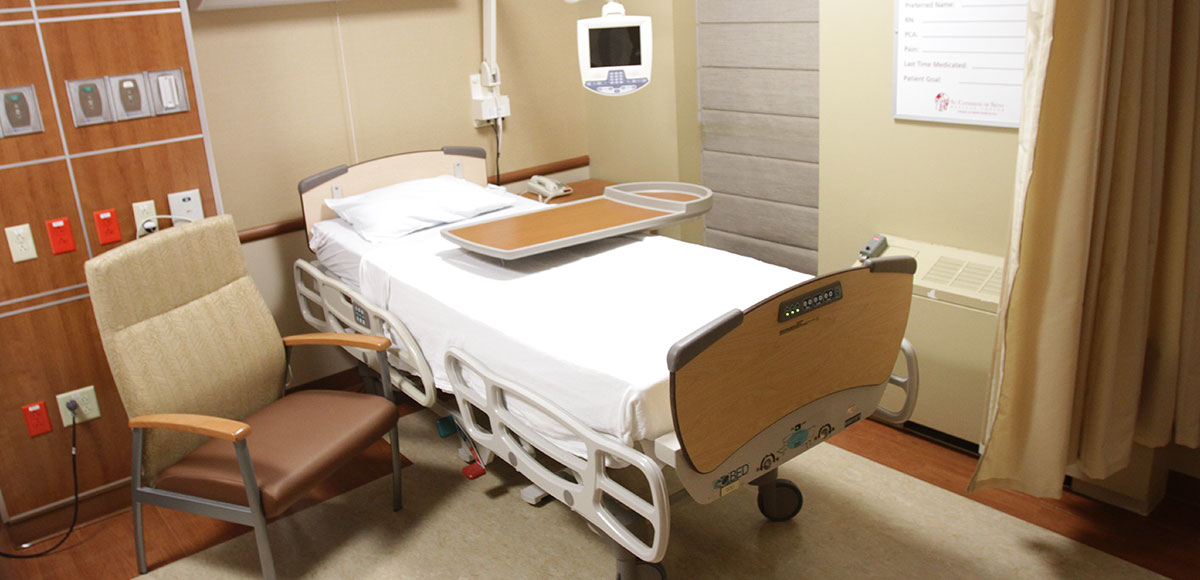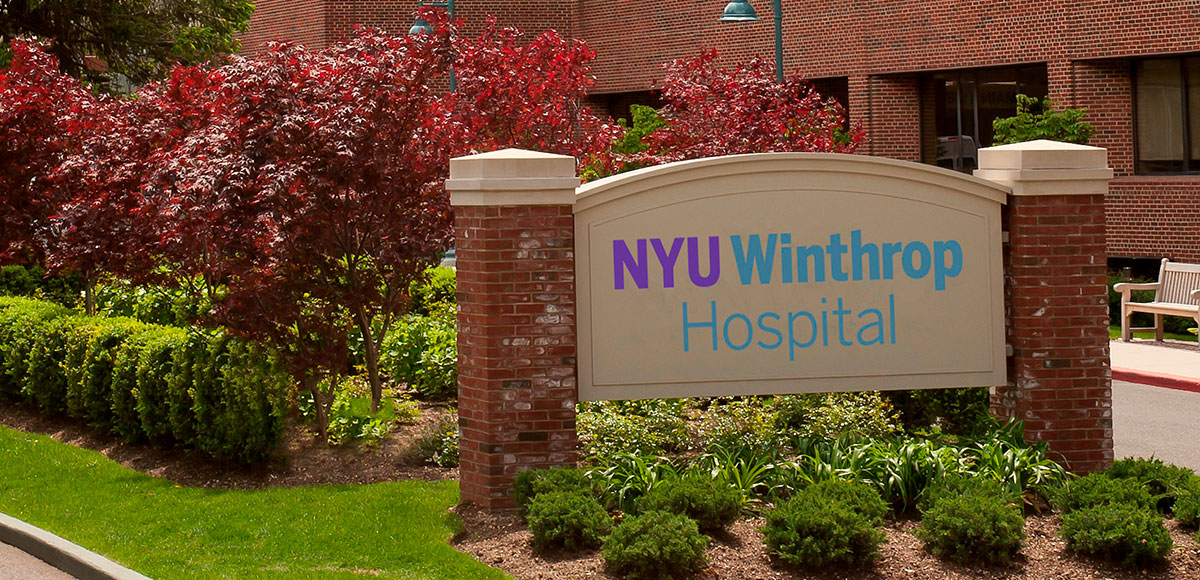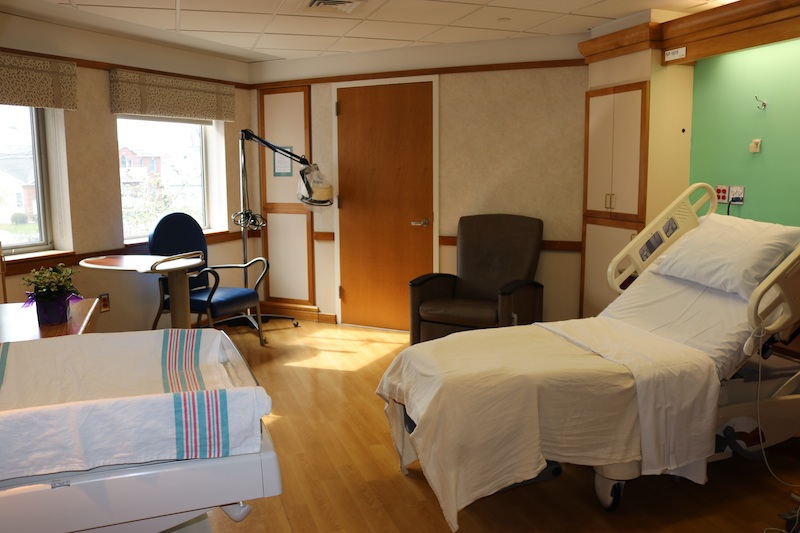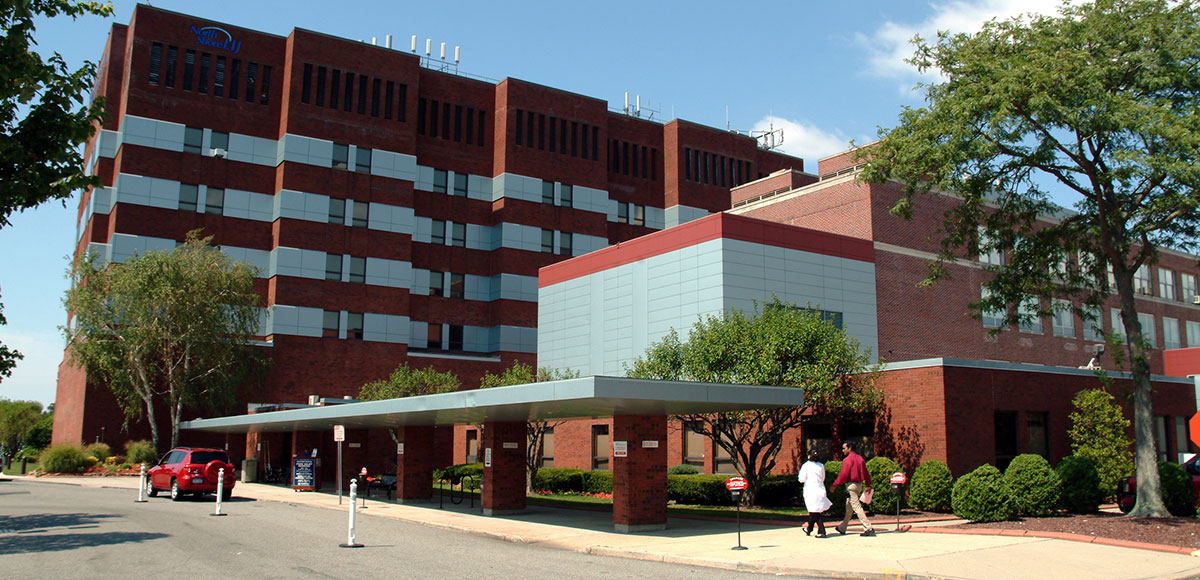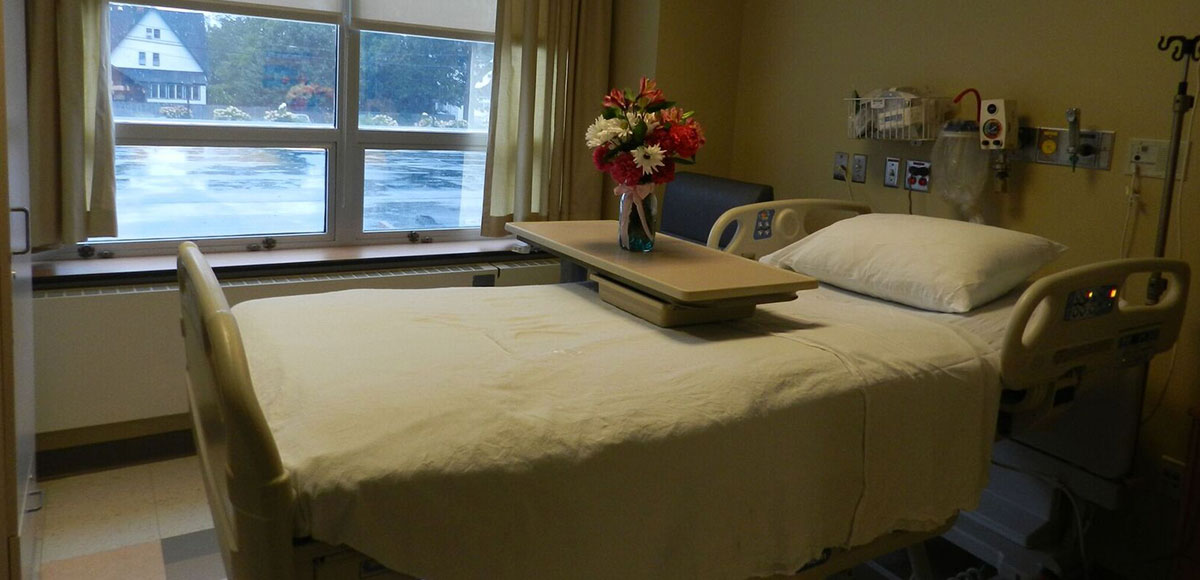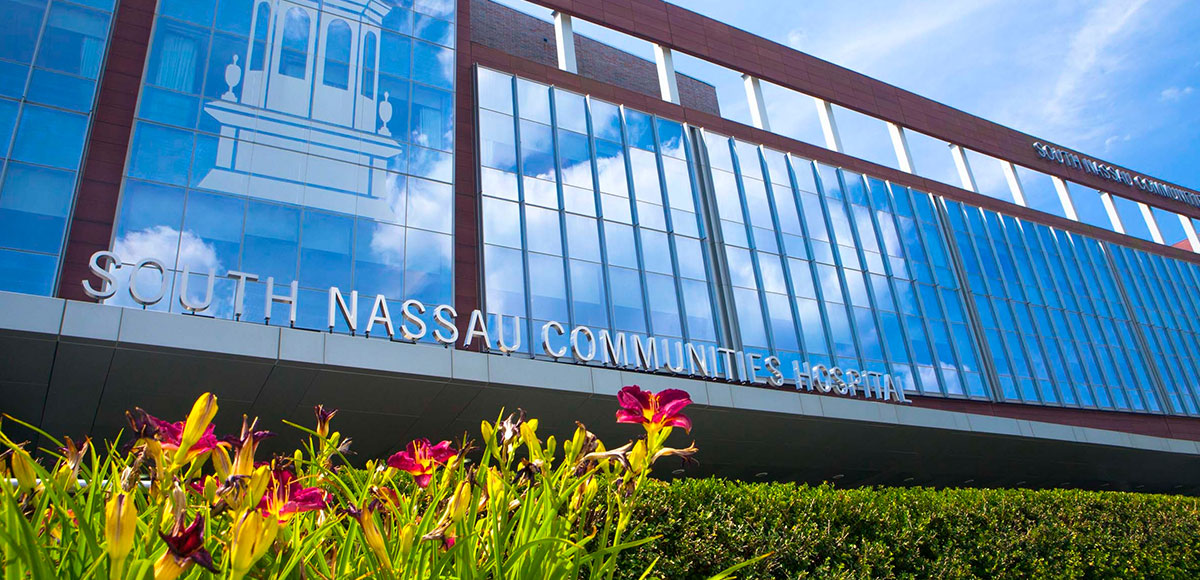
Do you offer private rooms? If so, what is the cost?
South Nassau has 26 private rooms on the Mother Baby Unit. Each includes a full bathroom.
Do you offer prenatal, sibling or other classes?
We’ve developed programs, such as breast-feeding support, to help patients before they leave the hospital. We offer a range of classes and support, which include baby care, preparation for breast-feeding, infant/child CPR, prenatal yoga, mommy-baby yoga, prepared childbirth class, safe sitter class as well as a sibling class.
What special things do you do for the mother and baby?
The birth of a baby at South Nassau is celebrated by playing Brahms’ Lullaby over the hospital’s public address system, heralding the birth.
Do you have an on-site neonatal intensive care unit (NICU)?
Yes, we have a Level II NICU. The medical staff includes physicians who are board-certified in neonatology and board-certified in maternal-fetal medicine, as well as registered nurses. Technology in the NICU nursery ensures intensive one-on-one care anf features state-of-the-art monitoring system. It’s equipped with advanced equipment designed especially for premature babies and other newborns with special needs.
Do you have a labor and delivery room?
Yes, expectant mothers typically labor/deliver/recover in the same room on the L&D floor before transferring to their private room on the Mother Baby unit until they are discharged home.
Are doulas or midwives allowed?
Midwives with South Nassau Communities Hospital privileges can practice here, and some are on staff. Up to three labor coaches, designated by the expectant mother, are allowed to be present in the room during labor and delivery. The patient may choose to bring a doula, as one of her labor coaches. In the event of a C-section, the father of the baby, or significant other, can be present in the operating room.
What kind of security measures do you have in place to make sure the baby is safe?
The hospital uses a state-of-art infant security system. All L&D, Mother Baby and NICU visitors are screened prior to being allowed access to ensure safety and security of mother and child.
Is there a breast-feeding coach and lactation consultant available on-site? Does the hospital support breast- and/or bottle feeding?
South Nassau Communities Hospital is a ‘Baby Friendly’ hospital designated by the World Health Organization for its commitment to mothers and newborns, and in recognition of its effort to foster breast-feeding. The ‘Baby Friendly’ designation recognizes birth facilities that offer breast-feeding mothers the information, confidence and skills needed to successfully initiate and continue breast-feeding their babies. South Nassau has also established the Lactation Resource Center, to support the new mother and her newborn by providing breast-feeding education, assistance and support. It’s staffed by a professional team of experts who are certified by the International Board of Certified Lactation Consultants (IBCLC) to help before, during and after the hospital stay.
Is videotaping/photographing the birth allowed? A photographer for newborns available?
Videotaping and photographing the newborn and the new mother after delivery is allowed. South Nassau offers newborn photography services on premises, while the new mother and the baby are still in the hospital.
What do the rooms look like?
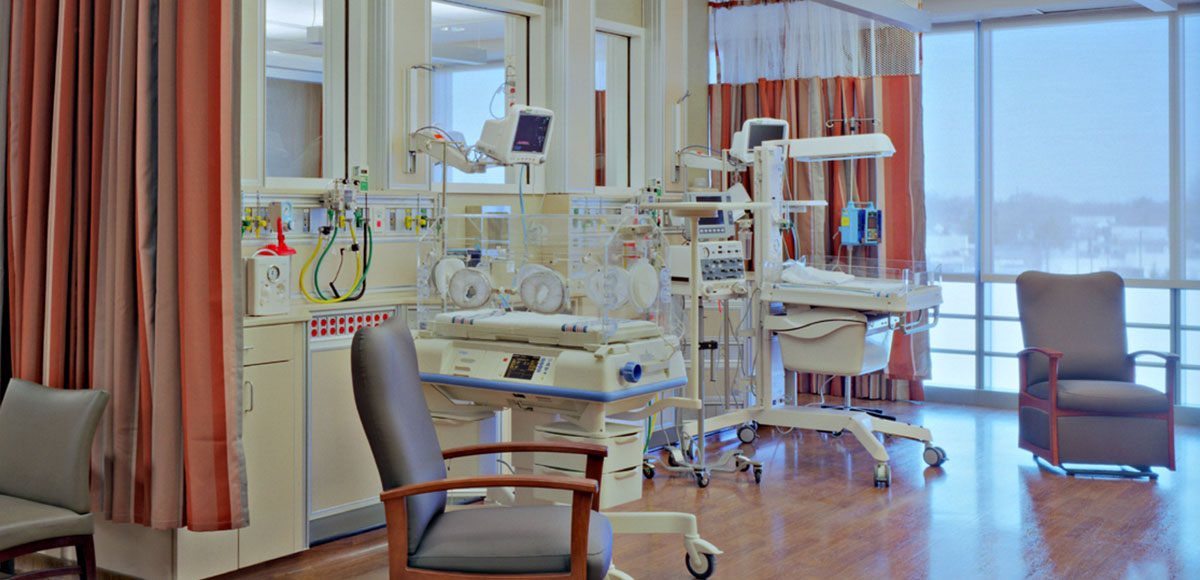
Do you offer anything special for moms during labor (i.e. hydrobath, labor ball, etc.)?
Expectant moms can bring labor balls or something similar. Our Labor and Delivery nurses will be happy to work with the mom-to-be as long as the mother and baby can be adequately monitored to assure safety. The L&D nursing staff encourage skin-to-skin contact upon delivery. South Nassau is currently implementing the Gentle Cesarean Section philosophy, when skin-to-skin contact and breastfeeding are encouraged and supported in the operating room.
Do you offer a hospital tour?
Yes, at maternity orientation. Expectant parents will get information about the hospital, see a presentation and take a tour of the maternity unit.
Does the hospital do cord blood banking?
The South Nassau staff and doctors support and participate in cord blood collection.
Do you offer any parting swag bags with samples?
South Nassau chooses not to participate in direct marketing promotions and product sampling programs designed to influence the parental process of learning and determining what products are best for the baby.
Are siblings allowed to visit? Can the spouse sleep in the room?
The father of the baby, or an adult significant other of new mother’s choice can stay with the mother and the newborn in the room at all times. Children under 12 must be accompanied by an adult.
What are the visiting hours?
The Center for New Beginnings maternity unit is open to visitors 24 hours a day, seven days a week.
What’s the rate of C-sections at the hospital?
The hospital’s C-section rate is 35 percent overall, with a 24 percent primary C-section rate.
What’s the rate of breast-feeding mothers?
Our breast-feeding rates are consistently more than 90 percent. The exclusive breast-feeding rates at discharge are around 50 percent, and close to 95 percent of South Nassau newborns are at least partially breast-fed.
What is the episiotomy rate?
We have an approximately 8 percent episiotomy rate.
Will my baby be able to sleep in the same room as me? Is there a nursery?
We promote moms and babies not being separated and are able to sleep in the same room. All assessments and tests for the babies can be done in the room as well. Yes, there is a nursery if needed.
Average length of a postpartum stay?
The average length of stay for vaginal deliveries is two days after delivery and three days after cesarean sections. However, the health and wellness of the mother post-delivery is paramount, so the length of stay will depend on how well the new mom and the baby are recovering from birthing experiences.
Does the hospital offer anything new/cutting edge?
The hospital’s Division of Maternal-Fetal Medicine offers a thorough assessment and follow up of all expectant moms and fetuses. Our exceptional Maternal-Fetal Medicine team complements the care of your obstetrician. We provide consultation, sonogram review and other testing for conditions that might affect the health of the mother or unborn baby. The Center’s ultrasound lab uses high frequency ultrasound systems to create 2D, 3D or 4D images to monitor the progression of pregnancies and evaluate fetal well-being. Genetic testing provides information to address possible genetic risks. Fetal echocardiography is used to view the structure and function of an unborn child’s heart to detect possible congenital heart defects or disease. The expert care in Maternal-Fetal Medicine augment by South Nassau’s partnership with the Mount Sinai Health System. Through this partnership, mother and child have the support of an additional team of well-respected specialists and subspecialists in high-risk pregnancies. Additionally, should the mode of delivery by a C-section, South Nassau implements a gentle C-section approach. A mom-to-be has an opportunity to see the baby at the moment of cesarean delivery, and experience a skin-to-skin contact within minutes after baby’s birth. Mother preferences in music during the surgery (if any) can also be considered.

